
|
 |
International Conference
Colloque International
Tourism Imaginaries /
Imaginaires Touristiques
|
|
Imaginaries of place, destination, and travel are increasingly produced/consumed by diverse populations around the globe through expanding forms of media and opportunities for travel. A range of players collaboratively produces spatial imaginaries (the potential power of place as a tourist destination) in touristic systems.
The tourist imaginary, as a nexus of social practices through which individuals and groups intersect to establish a place as a credible destination, has yet to be fully explored or defined. When they are negative, they foster avoidance of the places. They intervene not on at the moment of choice, but also on the spot, deciding for or against certain practices. We have organized this conference with the goal of a deepening of knowledge of and advancing research methods and scholarship, towards a more complete understanding of the tourist imaginary.
We seek papers that not only conceive the imaginary to be a fixed space at an exact location, also take into account the multiplicity of articulations which exist in all directions (and before and after) in the production of these representations, taking into account both cultural/institutional and personal perspectives. We are looking for papers that not only analyze tourism imaginaries as lineal visions but also apply dynamic perspectives that explore those mutually engaged in tourism to be both producersand consumersof imaginaries.
|
|
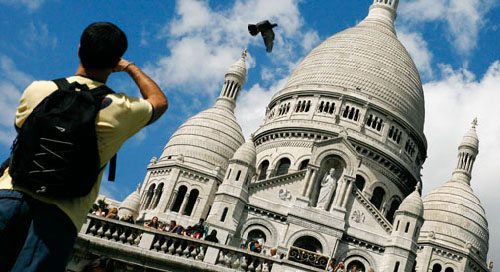
|
|
We encourage submissions from across disciplinary perspectives exploring (but not limited to) the themes and sub‐themes below. We solicit different disciplinary approaches (e.g. philosophy, aesthetics, psychology, anthropology, history, etc.)
+ ASPECTS OF THE SOCIAL PRODUCTION AND DIFFUSION OF TOURIST IMAGINARIES
‐The production of imaginaries in the context of global competition
‐The transformative influences of information and information sources
‐The abilities of advertizing and marketing to transform imaginaries
‐The accumulation (sedimentation) of layers of the imaginary
‐Diplomatic and geopolitical hazards and relations of power
‐Objects perpetuating imaginaries: souvenirs, photos, postcards
‐Different media stakeholders: media, photographers, blogs etc.
+ ASPECTS OF RECEPTION AND CONSUMPTION OF IMAGINARIES
‐The influences of imaginaries in the choice of destinations
‐Concordance and dissonance between imaginaries and experience
‐Temporalities of the imaginary (the cultural persistence of imaginaries over time; The flux of personal imaginaries during the tourist experience of a trip)
‐The mystification of tourist sites adhering to a strong imaginary, and the imagination of tourism’s role related to the modernization process
|
|
|
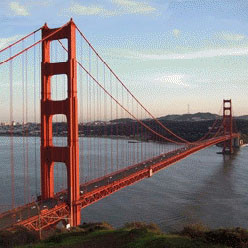
|
|
|
+ GEO‐SEMANTICS OF TOURIST IMAGINARIES
‐Do the stereotypic forms of tourist imaginaries fall into certain types?
‐What are they and what are their characteristics?
‐Could one construct a “geography” of the tourist imaginary?
+ CONFLICT/COMPETITION BETWEEN AND/OR WITHIN IMAGINARIES AND NARRATIVES
‐Explorations of the intersecting, divergent, parallel, conflicting, competing multitude of imaginaries of a single geographical location
‐Examinations of production/consumption of those whose labor, leisure and life converge around imaginaries [(potential/ex‐) travelers, industry members/workers, residents]
‐Beyond the Frame: what is left to the imagination beyond all the stories, pictures and brochures?
+ STABILITY AND CHANGE
‐Stability and change of imaginaries in cultural (not personal) time
‐Changes in imaginaries and the forces behind change (institutional/experiential)
‐Stability and change imaginaries in tourists’ minds –before/during/after travel
‐Tourist‐historic imaginary (cf. tourist‐historic city) and the concept of mentalité
‐The continual enactment of the tourist imaginary in tourist venues and the attractions/performances and spectacles offered to tourists
|
|
|
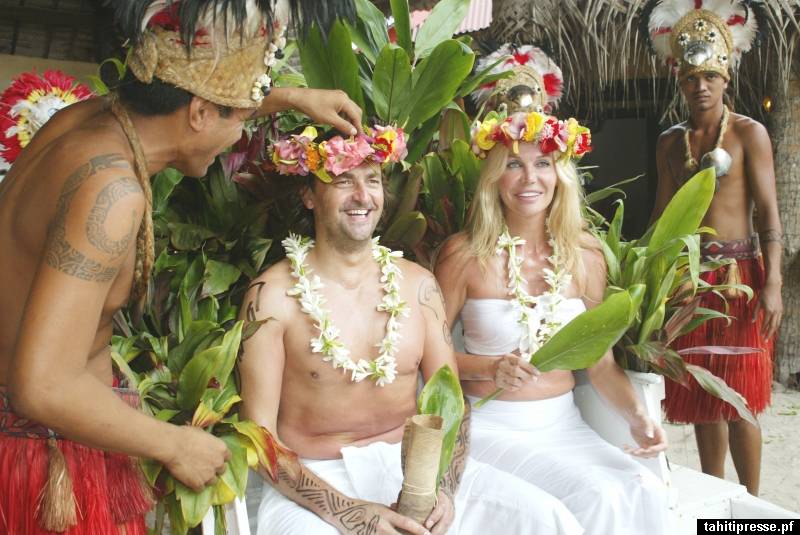
|
|
|
+ INSTITUTIONAL AND PERSONAL ARTICULATIONS
‐Articulations between institutional imaginaries and political and cultural forces outside of the tourism field
‐Individual resistance and modification of given cultural/institutional imaginaries, as well as the acceptance, performance, embodiment and habitus‐formation of imaginaries
‐Temporal trajectories of the narrative imaginaries, as carried by travelers, in relation to the micro‐and macro‐forces of stability and change throughout the anticipation, experience, and recollection of the tourist experience.
‐Touristic practices, performancesand imaginaries.
‐Imaginaries and the unconscious, embodied, ocular‐centric –how to study them?
+ RELATIONS OF CONTEXTUAL‐RESOURCES TO KINDS OF IMAGINARIES AND KINDS OF TOURISM
‐History, archaeology, original ethnic attributes
‐Anthropology, multiculturalism, demography
‐Geology, geomorphology, geography
‐Climate, ecology, botany and zoology.
+ RELATIONSHIPS BETWEEN LOCATIONS AND TYPES OF IMAGINARIESand potential carriers/users, and the feedback in the construction of identity and community, in terms of social segments, such as
‐Nations, super‐national groups (e.g. ‘Asians’), ethnic groups, regional groups
‐I, II and III Worlds, IV World (i.e. indigenous peoples)
‐Wealth, Classes, educational and status groups
‐Gender, age, sexual orientation; hobbies, sports etc.
‐The development of new sources of tourists and tourism (e.g. Japan, China), are there correspondingly new forms of tourist imaginaries?
+ INSTRUMENTS FOR CARRYING, STORING, AND PERPETUATING THE IMAGINARY
‐Time worn and modern media
‐Control by culturally productive social groups, e.g. the ‘micro‐milieuxintellectuels’ (1) and the classes with cultural capital
‐Management of landscape, establishments, and atmospherics (“servicescapes”) (2)
+ QUESTIONS OF METHODOLOGY
‐What are the resources and methods for studying imaginaries?
‐What ethical problems are entailed?
|
|
|

|
|
|
SUBMISSIONS:
Please submit your ONE‐page abstract in English or French (preference will be given to submissions which we may consider for publication) and a ONE‐page short CV by September 15th 2010.
The selections will be announced before 15 October 2010.
|
|
|
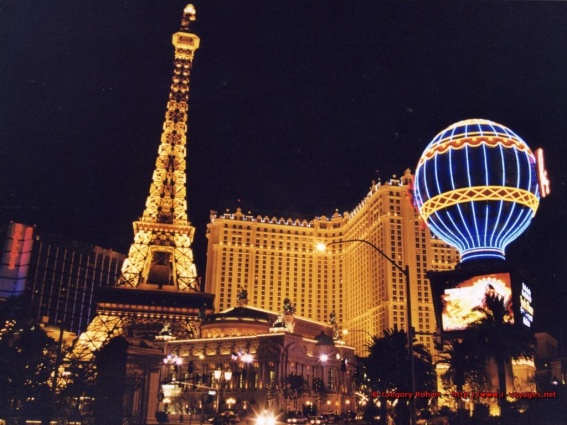
|
|
|
PLANNING SCHEDULE:
MAY 2010: Announce the call for papers.
JULY 15TH: Deadline for the submission of proposals.
OCTOBER 15TH: Selection and contacts with authors.
NOVEMBER: Announcement of the Program.
18‐20 FEBRUARY 2011: Conference in Berkeley.
APRIL 2011: Papers submitted to Scientific Committee for revision and publication.
MAY/JUNE 2011:Close consultation on publication plans.
July 2011: First set of revised papers compiled and submitted to publisher.
PRELIMINARY CONFERENCE SCHEDULE:
FRIDAY, FEBRUARY 18TH:
Daytime: Local/Regional Excursion
Afternoon: Orientation and Reception
Evening :Opening Banquet, Keynote Address
SATURDAY, FEBRUARY 19TH:
Concurrent Sessions, morning and afternoon
Luncheon Keynote
Evening: Film showing (French and English) and Discussion
SUNDAY, FEBRUARY 20TH:
Concurrent Sessions 2sessions X5 speakers each,10/day
Luncheon Keynote
Closing Reception – at P.A .Hearst Museum
(One panel will be reserved for French speakers,
with sequential translation)
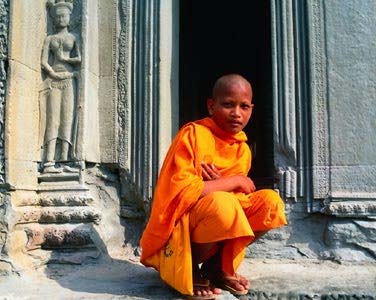
CONTACT INFORMATION:
Maria GRAVARI‐BARBAS: maria.gravari‐barbas@wanadoo.fr
Nelson GRABURN: graburn@berkeley.edu
SCIENTIFIC COMMITTEE / COMITE SCIENTIFIQUE:
Athinodoris CHRONIS, Marketing, California State U., Stanislaus
Alexis BUNTEN, Anthropology, California State U., Humboldt
Charles CARROLL, Interdisciplinary Studies, U C Berkeley,
Mahlon CHUTE, History of Art and Architecture, U C Santa Barbara
Béatrice COLLIGNON, Geography, Paris 1 Panthéon‐Sorbonne U.
Saskia COUSIN, Sociology/Anthropology, François‐Rabelais U, IIAC‐LAIOS+EIREST
Catherine COVEY, Architecture, U C Berkeley,
Jenny CHIO, Visual Anthropology, U. of Technology, Sydney
Bernard DEBARBIEUX, Geography, Geneva U.
Jennifer DEVINE, Geography, U C Berkeley,
Jean‐Christophe GAY, Geography, Nice U.
Nelson GRABURN, Anthropology, U C Berkeley and IICTD, London Metropolitan U.
Maria GRAVARI‐BARBAS, Geography, Paris 1 Panthéon‐Sorbonne U., IREST, EIREST
Stephanie HOM, Italian Studies, U of Oklahoma
Isabelle LEFORT, Geography, Lyon 2 U.
Naomi LEITE, Anthropology, U C Berkeley
LU Jin, Anthropology, Xiamen University
Claudio MINCA, Geography, Royal Holloway and WageningenU.
David PICARD, Anthropology, Lisbon U.
Ben PORTER, Near Eastern Studies, U C Berkeley, (pending)
Mike ROBINSON, Geography, Leeds Metropolitan U.
Noel B. SALAZAR, Anthropology, University of Leuven
Jean‐François STASZAK, Geography, Geneva U.
LinaTEGTMEYER, North American Studies, JFK University, Berlin
Jean‐Didier URBAIN, Linguistics, Paris V U.
|
|
 |
 |








